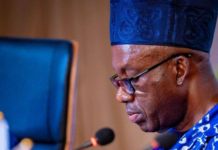Anambra State Government have been called to de-lump road construction budget to promote transparency and easy monitoring by civic actors.
Angel Network News (ANN) reports that
some Civil Society Organizations (CSOs) in consortium made the call during the Anambra State Budget Forum on Livelihood Matters and Human Capital Development.
They noted, “Merging all road projects under a single budget line hinders effective oversight. Other states like Enugu and Kaduna have de-lumped theirs, and Anambra should follow suit.”
The CSOs also called for the design and construction of disability-friendly roads and bus stops, noting that ministries of Works and Housing should reflect such plans in their budgets.
“The state’s physical planning authorities must align with the disability rights law to ensure that urban projects and city plans promote accessibility and inclusion,” the group added.
On education, the consortium called on the state government to clarify the scope of its free education policy for better public understanding and scrutiny.
“The public needs to understand what “free education” actually entails. There should be a clear list of what the state intends to provide whether tuition, textbooks, uniforms, or other learning materials,” it said.
“Without a clear definition, it becomes difficult to hold the government accountable for what has or has not been delivered.”
The group also questioned whether the needs of persons with disabilities (PWDs) are reflected in the free education programme citing provisions in the state’s disability rights law, which require accessible learning environments and assistive tools such as Braille materials, hearing aids, and lighting suitable for learners with albinism.
“We want to know if these facilities are included in the state’s free education plan,” they said. “The classrooms must be inclusive and friendly for all learners.”
The consortium urged the state to address the shortage of sign language teachers by introducing sign language training in teachers’ colleges. “This is the only sustainable way to make sign language teachers available in schools,” they emphasized.
The CSOs lamented the plight of transport operators who face multiple taxation and harassment from different revenue agents.
“Drivers pay levies when entering and leaving the state, during loading, and even to community youths who mount illegal roadblocks,” the group said.
“The Revenue Harmonization Committee created under the State Harmonization and Consolidation Law should act to end this abuse.”
They also called on the government to establish a training and testing ground for drivers, as well as refresher programmes for mechanics to improve their skills on modern vehicle repairs.
“The mechanics have no permanent workspace and are often displaced after investing in makeshift sites,” they lamented.
To cushion the effects of the economic downturn, the CSOs proposed the creation of a transport sector support fund to help operators replace aging vehicles.
“With the rising cost of vehicles, most operators can no longer afford replacements,” they said. “Interventions from the Central Bank of Nigeria or similar support schemes could provide the needed relief.”







